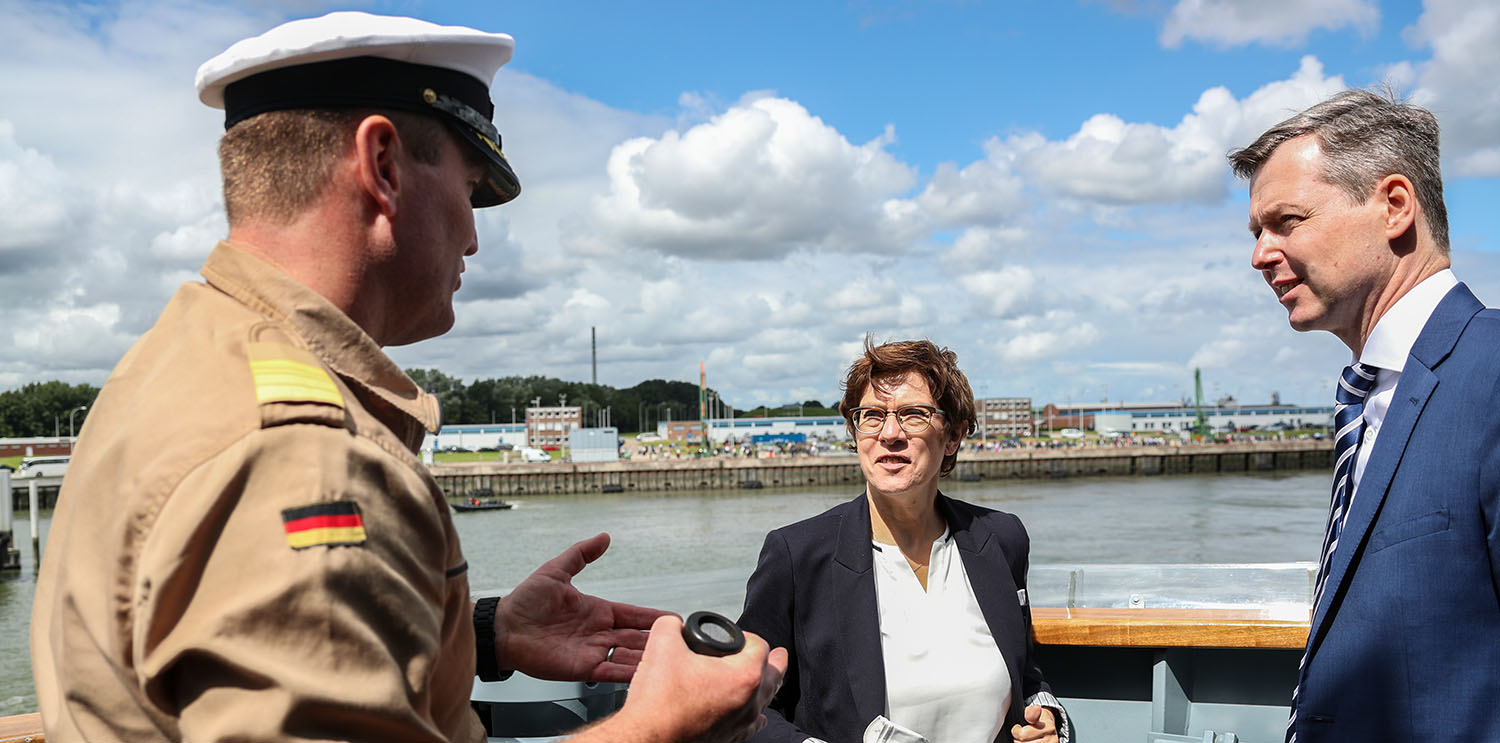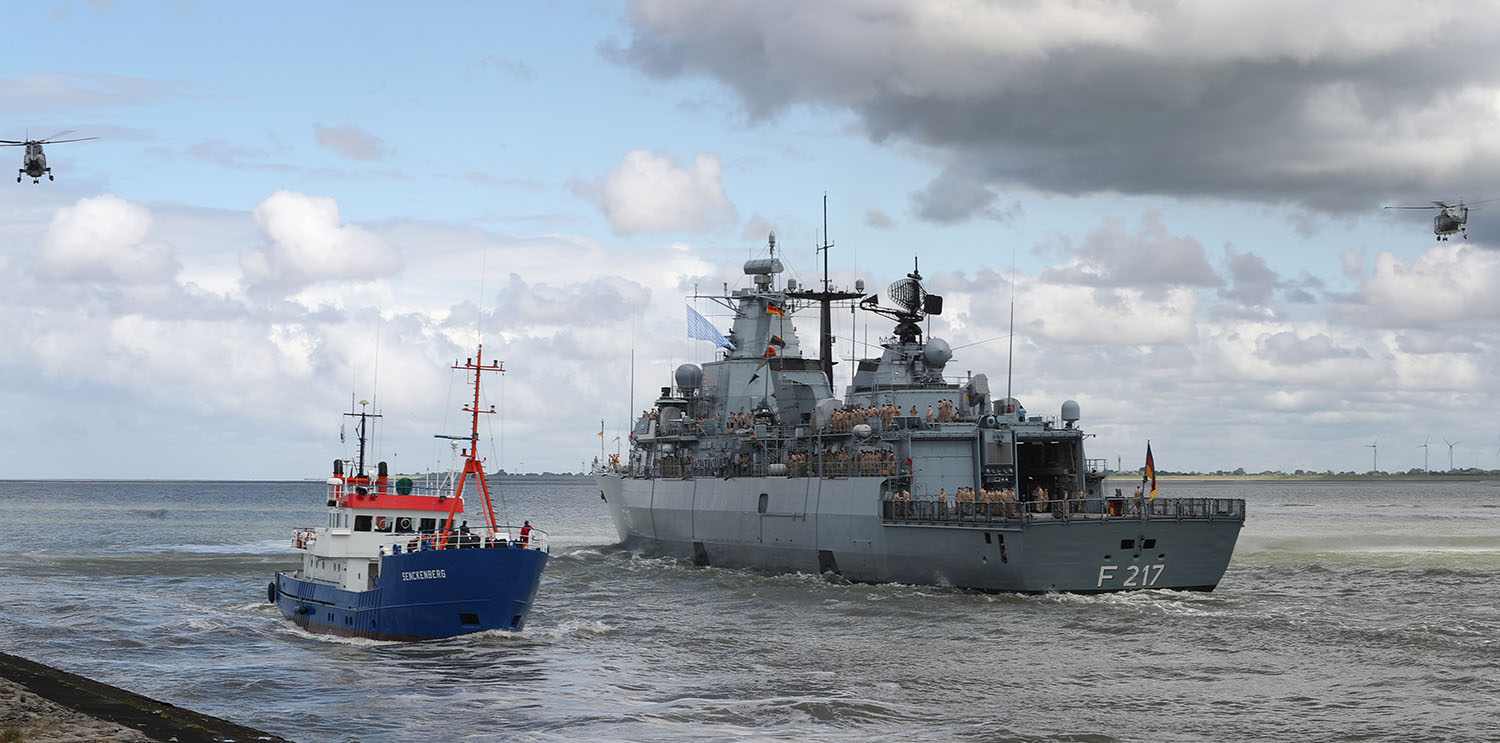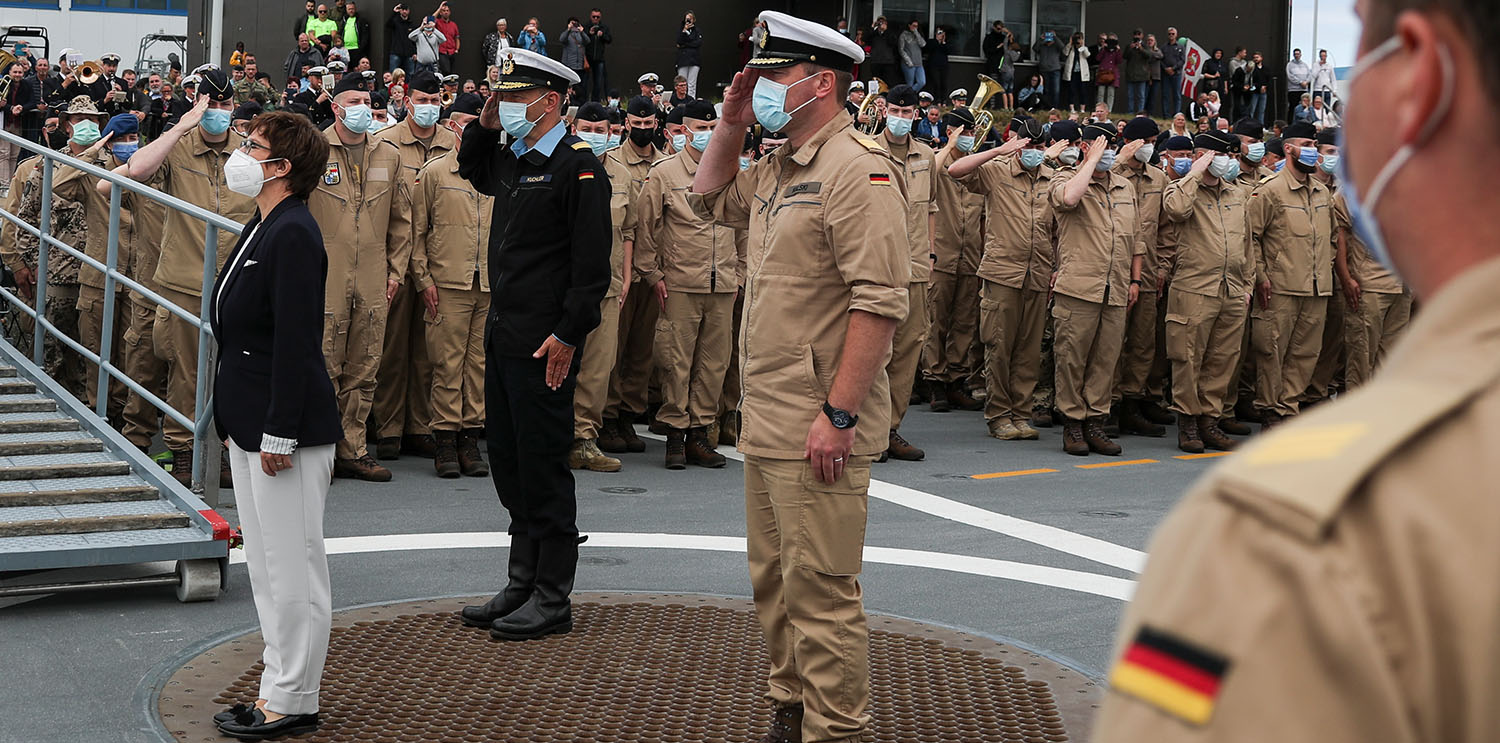On Monday, 2 August, the frigate Bavaria in the presence of the Federal Minister of Defence, Annegret Kramp-Karrenbauer, to sail to waters last sailed by the German Navy 19 years ago. The itinerary was published just in time for the departure. It is a big programme. The voyage will take the Bavarians to three continents, 16 countries and 17 harbours. The programme includes exercises with partner navies, temporary participation in the Sea Guardian operations in the Mediterranean and Atalanta in the Horn of Africa, involvement in the UN sanctions regime against North Korea and various port visits in Singapore, Australia and Japan. The offer of a port visit to the People's Republic of China emphasises the importance of this giant country as one of the most important economic partners.

The reason for the trip can be found in the German government's guidelines on the Indo-Pacific. The Indo-Pacific region is of considerable importance to Germany and Europe. The Federal Government wants Germany to become more involved there in future. Relations with the Asean states, Australia and India are to be strengthened, for example through the conclusion of further free trade agreements. Furthermore, points of contact are to be created for closer cooperation - including in the area of security policy - with partners in the Indo-Pacific region. The term Indo-Pacific is interpreted in different ways; the German government defines it as the entirety of the area characterised by the Indian Ocean and the Pacific. Vice Admiral Kay-Achim Schönbach, Chief of Naval Operations, commented: "It's about flying the flag and demonstrating on the ground that Germany is standing up for the freedom of the sea lanes and compliance with international law in the region alongside its international value partners. To summarise, this means meeting our partners and training together. Among other things, we also intend to take part in monitoring the United Nations sanctions against North Korea. In doing so, we are actively and visibly underpinning our commitment to the rules-based order in the Indo-Pacific, to the implementation of UN Security Council resolutions and thus to strengthening the UN as a whole." The Bavaria is expected to return in February 2022.
In your speech on board the Bavaria In front of the crew and their families, Defence Minister Annegret Kramp-Karrenbauer gave detailed reasons for the trip and spoke of a historic moment. She clearly stated that it was about the freedom and security of the seas, the central interests of our trade routes, working with partners and representation. We would not accept the suppression of free trade routes in violation of international law or the law of the jungle. Kramp-Karrenbauer thus sent a clear message to China, clearer than the Chancellor and the Federal Foreign Office. "Don't let the rules of the game be dictated to you."

The minister had three key messages for the crew: "Firstly, what you do counts." By this she meant the political significance of this voyage. With the additional participation in the Sea Guardian and Atalanta operations, the Bavaria "quite a package". And they were "travelling for something - not against something". The second message to the crew was that this voyage had "future value", as the increased importance of the sea, particularly for Germany, also meant that the navy was more important. She supplemented this with a reference to a "rules-based order". Kramp-Karrenbauer mentioned the contacts with the countries in this part of the world and announced that they would be looking forward to the Bavaria are pleased. She described the third message to the crew as "recognition and respect" for the Bundeswehr in general. In doing so, she referred to the Bundeswehr's achievements in supporting the coronavirus and helping flood victims. She said that this deployment would hopefully also be an occasion for people in Germany to talk about it.
Finally, the Defence Minister thanked not only the crew, but also their families, who had to do without their loved ones for a long time - including at Christmas.
Kramp-Karrenbauer was accompanied by her State Secretary Thomas Silberhorn and MPs Henning Otte and Siemtje Möller. She left the base with the Bavariaand later returned to the base in a buster boat. The departure was accompanied by the two on-board helicopters flying low alongside the frigate.

Despite the cheerful military sounds of the Baltic Sea Naval Music Corps under the direction of Frigate Captain Szepanski, it was unmistakable that a slightly subdued mood prevailed among the relatives, who were allowed to say goodbye to their loved ones in detail before the Minister arrived on board. Conversations revealed that the many unresolved issues, which the commander also hinted at in his order of the day, were perceived as a burden.
This endeavour is also a journey into the unknown. It can be expected that all home services, in particular the naval command, the Bavaria unconditional support. It is even more to be expected that this support will be made clear by politicians. In any case, no political representation of the sponsor country was sighted.
Text: hsc; Photos: Bundeswehr/Leon Rodewald










